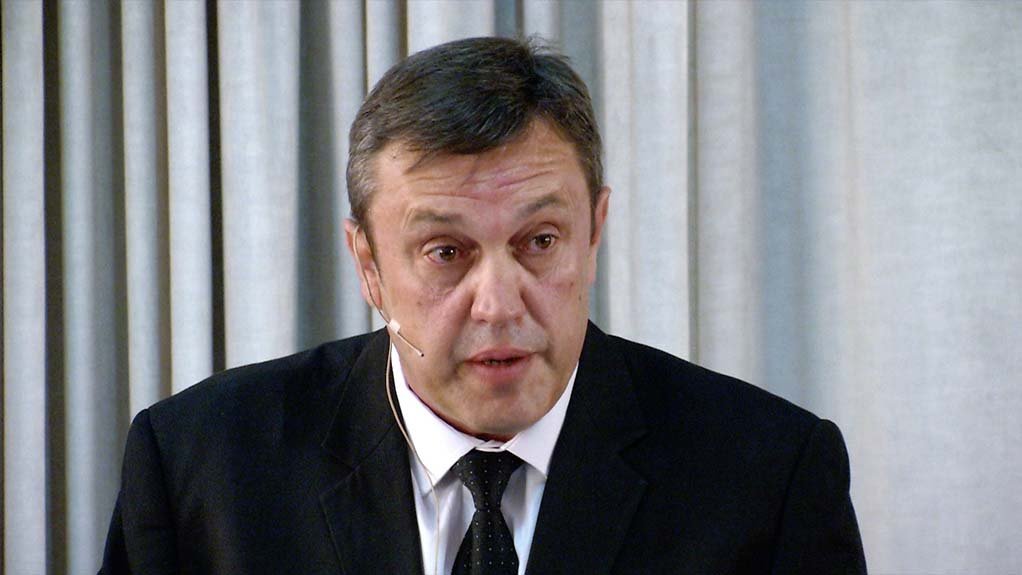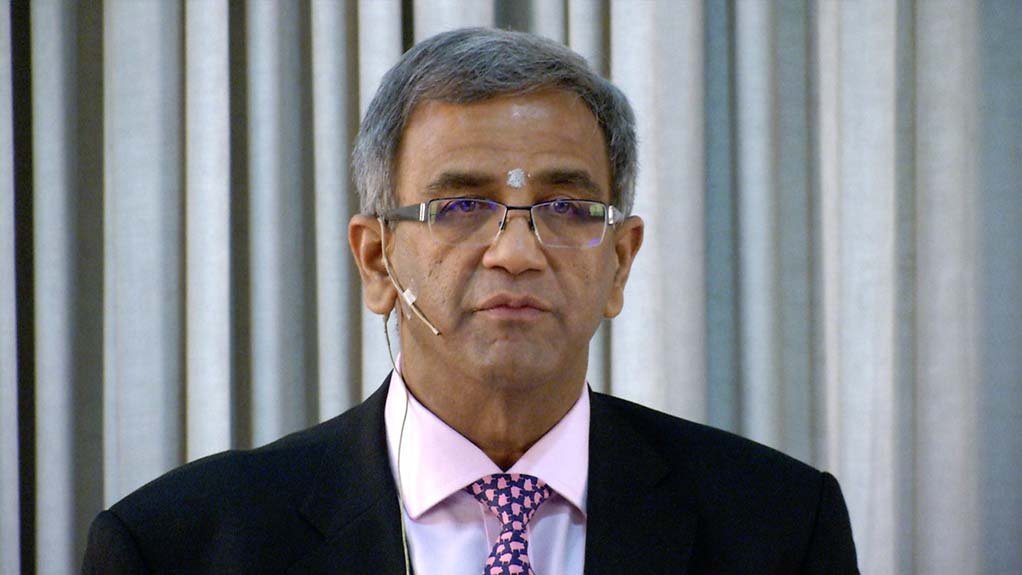JOHANNESBURG (miningweekly.com) – The Obuasi site remains clear of illegal miners and care-and-maintenance activities are ongoing at the Ghana operation, AngloGold Ashanti group planning executive Graham Ehm has assured.
“Ghana has definitely done a 180-degree turnaround,” he told investors, analysts and journalists at this week’s AngloGold results presentation attended by Mining Weekly Online. (Also watch attached Creamer Media video).
Ehm noted that the security turnaround at the formerly besieged mine became apparent in the first half of this year, following the election of the new government under President Nana Akufo-Addo.
This followed the government making support for Obuasi’s redevelopment very clear in its election manifesto.
AngloGold is currently engaging with the government of Ghana to obtain all the necessary consents and approvals for its redevelopment plans at the 120-year-old mine.
“We’re very pleased to say that this engagement is progressing well and we anticipate having everything in place before year-end,” said Ehm.
On the environmental front, AngloGold has executed a new reclamation security agreement, which defines the approach and the cost range of reclamation of the mine.
Following public consultation and approval of the scope by the Environment Protection Agency (EPA), AngloGold has submitted a final environmental impact study, based on which the EPA will issue permits.
On receipt of government consents and approvals, AngloGold will approach Obuasi’s redevelopment in a phased manner, which enables a reasonably quick start to gold production and reduces the capital cost.
A slide flashed on to a large screen showed the five areas earmarked for mining, beginning with the Sansu block and then moving on to Block 8, Block 10 and finally the high-grade Block 11.
Ehm outlined how the first year would involve establishment of the project and operating teams, the recommencement of mining and the refurbishment of plant and infrastructure to enable a commencement of operations in the second year at 2 000 t a day.
Production would ramp up to 4 000 t a day in the third and subsequent years.
Gold production would begin at 200 000 oz/y and increase to 300 000 oz/y for the first ten years and increase further to 400 000 oz/y when Block 11 is reached.
More than eight-million ounces will be produced over the 20-year life-of-mine at returns comfortably above AngloGold’s benchmark.
AngloGold Ashanti CEO Srinivasan Venkatakrishnan said the capital cost was still being calculated but would be significantly below the $800-million to $1-billion contemplated at one stage in the past.
“We’ll put out exact numbers once we’ve completed our review and engagement with the government of Ghana,” Venkatakrishnan added.
The possible enlisting of a joint venture partner is an option that continues to remain open.
“Whatever gives us the best shareholder value is what we’ll do,” he said.
The agreements needed with the government centre on environmental provisions, conditions for investment and the fiscal regime, currently under negotiation.
The security commitment being sought comes against the background of the government having taken a stance against illegal mining, not only at Obuasi, but across all Ghanaian operations.
The government has taken the clear view that it would rather support large-scale and small-scale mining, as opposed to the illegal mining that dogged Obuasi in the run up to the country’s general election.
Venkatakrishnan, who was reluctant to discuss losses suffered through the illegal mining of the past, said these would form part of the negotiations with the government.
SADIOLA PROJECT
In response to Macquarie Equities analyst Yatish Chowthee on investment at the Sadiola gold mine in Mali, Venkatakrishnan said that talks with the Malian government were under way on the renewal of construction and operating permits, the power agreement and fiscal terms, but that the ball was very much in the Mali government’s court.
AngloGold is subject to a current mining code and the government wants to introduce a new mining code, under which the project will fall.
When the company planned to go ahead with the Sadiola project ahead of the gold-price fall in 2012, it received a fiscal framework and power tariffs that it is now seeking to have reinstated.
“We’re not rushing to spend money on the project,” said Venkatakrishnan.
AngloGold international head Ludwig Eybers said that, in the meantime, the oxides would be mined at Sadiola into next year and that the processing of the oxides would continue into 2019.
“Our mine plans are being reviewed and will change depending on the progress of the negotiations with the government,” Eybers added.
EMAIL THIS ARTICLE SAVE THIS ARTICLE ARTICLE ENQUIRY
To subscribe email subscriptions@creamermedia.co.za or click here
To advertise email advertising@creamermedia.co.za or click here














